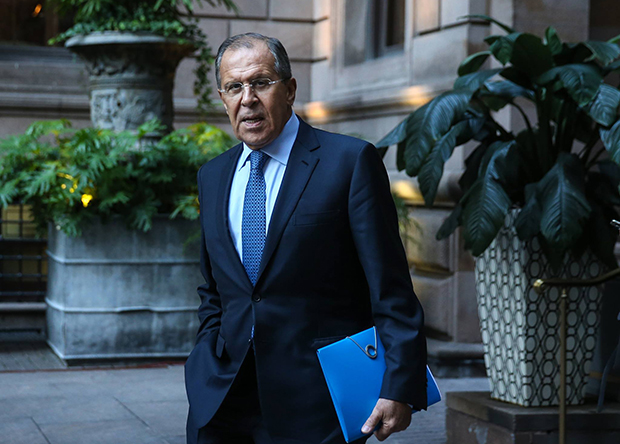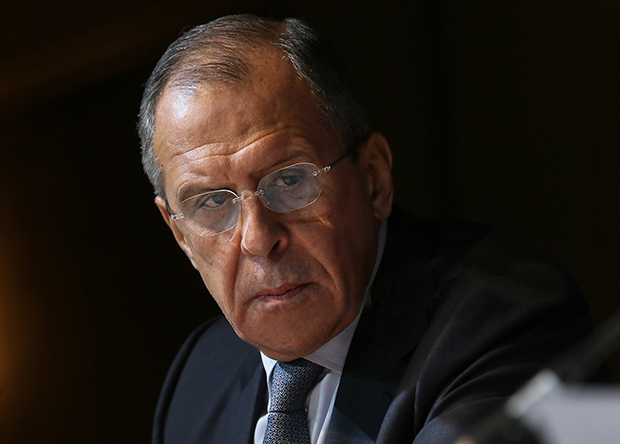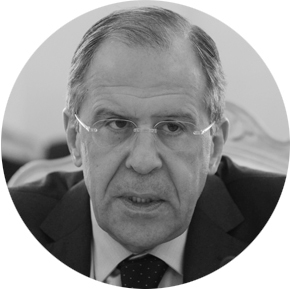Foreign Minister of Russia Sergey Lavrov will pay an official visit to Armenia on November 10-11. On the eve of the visit he gave an exclusive interview to Mediamax.
Mr Lavrov, in spite of publicly made statements, it is often possible to hear in the Russian media and expert circles that the Russian leaders are somewhat mistrustful of the new Armenian government. Are there any issues or themes in our bilateral relations that are of real concern to the Russian leadership?
Indeed, Russian-Armenian relations developed against the background of serious domestic political changes in Armenia in 2018.
It should be noted that the new Armenian authorities led by Prime Minister Nikol Pashinyan, demonstrated serious commitment to strengthening allied relations and expanding comprehensive cooperation, both bilaterally and within the framework of integration formats. The high dynamics of political dialogue at the top and high levels, the intensity of interdepartmental and interparliamentary contacts prove this. This year, Nikol Pashinyan met with President Vladimir Putin four times and also four times with Prime Minister Dmitry Medvedev. The Russian-Armenian top-level constructive and trust-based dialogue contributes to the effective resolution of key issues on the bilateral agenda, and helps to lay the groundwork for the future.
Russia remains Armenia’s leading economic partner and its share in Armenia’s foreign trade is over 26 per cent. About 45 per cent of all foreign investment falls on our country. A number of large-scale joint projects are being implemented. Over 2,000 enterprises with Russian capital operate in Armenia. Interregional cooperation is advancing. Exchanges are deepening in culture, education and science, as well as people-to-people contacts.
Of course, with such a volume and versatility of relations can objectively give rise to disagreements. Most importantly, our Armenian friends and we are united in the desire to resolve them in a constructive manner and to reach mutually acceptable solutions. We have established effective mechanisms to resolve the problems that arise. We are optimistic about the future of Russian-Armenian relations.
Armenian leaders are saying that they are trying not to play on the confrontation of the great powers in our region, but, on the contrary, to create conditions for smoothing them. How successful do you think these attempts are?
In our opinion, Yerevan’s foreign policy is balanced and responsible. We note the commitment of our Armenian friends to preserving and strengthening strategic partnership and alliance with Russia, and their energetic participation in various multilateral associations in the post-Soviet space.
Armenia’s current very involved and productive chairmanship in the EAEU is a clear confirmation of this. Within the framework of the Collective Security Treaty Organisation, Moscow and Yerevan are working together to consistently build up the potential of collective security forces and means. Together with our Armenian colleagues we strive to maximise the use of significant opportunities created by the CIS, which unites most of the former Soviet republics.
What can you say about the progress of the Syrian political settlement process?
Tangible progress has been made recently in this area. Obviously, the leading role is played by the Astana format countries (Russia, Turkey and Iran). Thus, on October 30, Geneva hosted the first meeting of the Constitutional Committee composed of representatives of the government, the opposition and civil society. Let me remind you that a decision on its establishment was made following the Syrian National Dialogue Congress held in Sochi in January 2018. This was the first time the sides managed to launch a direct intra-Syrian dialogue on issues related to the Fundamental Law of the SAR. Now Syrians are to come to terms on a whole range of relevant issues independently, without any interference or pressure from the outside.
Speaking about the situation on the ground, I would like to note the agreements signed following the talks between Vladimir Putin and Recep Tayyip Erdogan in Sochi on October 22 on measures designed to facilitate de-escalation of tensions in the northeast of Syria. The Russia-Turkey memorandum became a major step towards restoring Syria’s territorial integrity.
Obviously, Syria’s return to the “Arab family” is called upon to become an inalienable part of the final settlement of the Syrian crisis. I am referring to the restoration of Syria’s membership in the League of Arab States. We believe this issue is long overdue.
 Sergey Lavrov
Sergey LavrovPhoto: Russian MFA
The requirement for the invigoration of the international efforts to provide comprehensive humanitarian relief for all Syrians without any preconditions is growing against the backdrop of progress on the political track. We appreciate Armenia’s contribution in this respect. It delivers humanitarian aid to Syria, clears mines, eliminates explosives and renders medical aid. We have experience of joint humanitarian missions with our Armenian friends. I am convinced we must continue this practice.
In turn, Russia is actively facilitating the solution of humanitarian problems in Syria. Every day, the centre for the reconciliation of the warring parties at the Khmeimim airbase delivers food and other basic necessities to different areas of the country. Russian sappers cleared numerous residential areas and important infrastructure facilities of mines.
A certain reduction in tensions along the contact line and the state border recorded over the past eighteen months has not facilitated equal progress at the talks on the Nagorno-Karabakh settlement. A broader look at the issue suggests the following question: do you think it is possible to settle the conflict in conditions where Azerbaijan has not made a single public statement on its willingness to accept the results of the referendum that, according to the proposal of mediators, is due to be held in Nagorno-Karabakh with a view to determining its political status?
We welcome the preservation of relative stability on the border and along the contact line. We believe that further reduction of tensions could help create a favourable atmosphere at the talks.
As for the final legal status of Nagorno-Karabakh, this is one of the most complicated issues. The heads of the countries that co-chair the OSCE Minsk Group have said more than once that this status must be determined at the talks by political means and based on the legally binding expression of will. The sides will still have to negotiate the parameters of this work, including its organisational aspects.
We recently marked 10 years since Armenia and Turkey signed protocols in Switzerland. You attended the signing ceremony along with European and American foreign ministers. Do you believe relations between Armenia and Turkey could get back to normal without linking them to the Nagorno-Karabakh settlement and is Russia ready to play a role in this?
Russia played an important role in the thaw in relations between Armenia and Turkey when this process was in its active phase, that is, in 2007-2009.
As a result, the Protocol on the Establishment of Diplomatic Relations and the Protocol on the Development of Bilateral Relations between the two countries were signed in Zurich on October 10, 2009, in the presence of the foreign ministers of Russia, the United States, France and Slovenia and the High Representative of the European Union for Foreign Affairs and Security Policy.
The protocols included provisions that can be described as sensitive for both countries: a provision on the absence of any preconditions for implementing the protocols and a provision requiring that the protocols be implemented in the context of joint efforts to normalise the overall situation in the region.
 Sergey Lavrov
Sergey LavrovPhoto: Russian MFA
When commenting on the signing of the protocols on behalf of our country, I said that Russia was ready to support this process through further efforts to carry out cooperation projects with Armenia and Turkey, primarily in the energy, transport and communications sectors.
Normalising ties between Armenia and Turkey is, first and foremost, an issue for Yerevan and Ankara to decide. Unfortunately, our partners have so far failed to restore their diplomatic relations. We believe Armenia and Turkey will continue working in this direction and the objective could still be achieved. On our part, we are prepared to provide whatever support the two sides might need, the more so because resolving disagreements between Armenia and Turkey as soon as possible would help improve the overall political environment in the South Caucasus and enhance security and stability there.





















